

|
The Second IFIP Workshop on |
|||||||||||||||||||||
| Friday, June 24 | |
| 08:00-08:25 | Welcome to IFIP IVDS 2022 Workshop Marco Vieira, Universidade de Coimbra Chris Walter, WW Technology Group |
| 08:25-08:50 |
Workshop Introduction and Objectives (slides)
Jay Lala, Raytheon Technologies |
| 08:50-09:00 |
Workshop Program and Rules of Engagement (slides)
Chuck Weinstock, Software Engineering Institute |
| Session 1 Session Chair: Paulo Verissimo, King Abdullah University of Science and Technology, Rapporteur: John Meyer, University of Michigan (slides) |
|
|
09:00-09:45
09:45-10:30 10:30-11:00 11:00-11:30 |
Automotive Cyber-Security – from standards to regulations (slides)
Christoph Schmittner, Austrian Ins of Tech (ATI) Cyber-Attacks Against AI Stack in Autonomous Driving and Intelligent Transportation (slides) Alfred Chen, UC Irvine Discussion Break |
| Session 2: Panel: Cyber Attacks on Safety-Critical AV Functions: Technology & Policy Session Chair: T. Basil Smith, Rapporteur: Wilfried Steiner, TTTech Group (slides) |
|
| 11:30-11:40 | Panel Introduction |
|
11:40-11:50
11:50-12:00 12:00-12:20 12:20-12:45 |
Cybersecurity for Connected and Autonomus Vehicles (slides)
Kristie Pfosi, Director, Cybersecurity, Aptiv Managing Legal Consequences from Cyber Attacks on Safety-Critical Functions of Intelligent Vehicles (slides) William Widen, Professor of Law, Univ of Miami School of Law Cross-Collaborating to Secure Autonomous Ground Vehicles and Other Emerging Technologies Against the Threats of Tomorrow (slides) Benjamin Gilbert, Cybersecurity Advisor (CSA) in US Department of Homeland Security. Panel Discussion |
| 12:45-15:30 | Lunch/Break |
| 15:30-16:00 | Coffee |
| Session 3 Session Chair: Lisa Spainhower, Rapporteur: Carl Landwehr, University of Michigan (slides) |
|
|
16:00-16:45
16:45-17:30 17:30-18:00 18:00 |
Security for Software-defined Vehicle (slides)
Robert Kaster, Bosch CyberShield – An Approach to Defeat Malware in Edge Computers using Hardware Diversity (slides) Brock LaMeres, Montana State Univ Discussion Adjourn for the day |
| Saturday, June 25 | Session 4 Session Chair: Andrea Ceccarelli, University of Florence, Rapporteur: Homa Alemzadeh, University of Virginia (slides) |
|
08:00-08:45
08:45-09:30 09:30-09:45 09:45-10:30 10:30-11:00 11:00-11:15 |
How to defend connected intelligent vehicles: Transferring established Information Security best practices to the vehicular world (slides)
Miriam Gruber and Jan Lange, Volkswagen Detection is not enough: Low-cost Attack Recovery for Autonomous Robotic Vehicles (slides) Karthik Pattabiraman, Univ of British Columbia (Short) Coffee Break Design and Assessment of Safe Autonomous Vehicles (slides) Saurabh Jha, IBM Research Discussion (Short) Coffee Break |
| Workshop Wrap-up Workshop Chair & Rapporteurs |
|
|
11:15-12:15
12:15-12:30 12:30 |
Session Outbriefs by Rapporteurs and Discussion
Rapporteur slides are attached to their respective sessions Concluding Remarks Jay Lala, Raytheon Technologies Adjourn for Lunch |
Speakers
 |
Workshop Introduction and Objectives Jay Lala, Raytheon Technologies Abstract: The IFIP Working Group 10.4 (Dependable Computing and Fault Tolerance) has undertaken a project on Intelligent Vehicle Dependability and Security (IVDS). The project vision, mission and goals are described on the home page of this workshop. The focus of this second IVDS workshop is on how to survive cyber attacks on safety-critical functions of intelligent vehicles. Our goal is to discuss design solutions, quantitative cyber-survivability measures, and verification and validation with regard to impact on autonomous vehicle safety. The expected outcome of the workshop is a set of specific actions, both short term and long term, to achieve the IVDS project's vision, mission and goals. The context for the IVDS project and the workshop is the promise of safe and secure SAE Level 5 vehicles. In an ideal end-state, these vehicles will obviate the need for human drivers and even personal autos. Benefits range from no more human carnage on the roads to reclaimed home and business garages and parking lots, leading to green and clean cities. But none of these benefits will be realized unless the vehicles are safe. While the AV safety can be affected by many causes, including hardware and software faults, errors, and failures, the focus of this workshop is on cyber attacks which can compromise the safety of passengers. The introduction will set this context for the workshop presentations, panel and discussions. Bio: Dr. Jaynarayan Lala is a Senior Principal Engineering Fellow at Raytheon Technologies. He is the Cyber Technology Director for the Raytheon Missiles and Defense (RMD) business unit where he has led advanced cyber technology development for the past 19 years. He is now also serving as the RMD Product Cybersecurity Officer. Jay has 47 years of experience that spans industry, government and research & development labs. At DARPA, he initiated ground-breaking research in intrusion-tolerant and self-healing systems. He was honored with the Secretary of Defense Medal for Exceptional Public Service for his work at DARPA. Prior to DARPA, for spent nearly a quarter century at Draper Lab in Cambridge, MA, where he architected fault-tolerant computers for many mission- and safety-critical platforms, including Seawolf Submarine, aircraft engine controllers and spacecraft. Jay has authored over 50 peer-reviewed publications, books and book chapters and has five patents. He (along with two Draper colleagues) received the IFIP Jean Claude Laprie award in 2015 for his work on the Fault Tolerant Multi-Processor (FTMP). Jay is a Life Fellow of IEEE and an Associate Fellow of AIAA. Jay received Doctor of Science and Master of Science degrees from MIT in Aero & Astro and a Bachelor of Technology (Honors) from Indian Institute of Technology, Bombay. |
 |
Automotive Cyber-Security – from standards to regulations Christoph Schmittner, AIT Austrian Institute of Technology GmbH Abstract: Today connectivity and information sharing are increasingly used for safety, comfort, and maintenance in the automotive domain. This highly connected networking increases the attractiveness of a cyber-attack on vehicles and the connected infrastructure thus introducing new risks for vehicle cybersecurity. Aware of this fact, the automotive industry and regulatory side have taken efforts to tackle these challenges by including cybersecurity in standards and regulations. Approaches were undertaken by standardization organizations like the International Organization for Standardization (ISO), Society of Automotive Engineers (SAE), European Telecommunications Standards Institute (ETSI) and International Telecommunication Union (ITU). From a regulatory side, nations approach Automotive Cyber-Security in different ways. This talk will give an overview of status, ongoing developments and relations between Automotive Cyber-Security standards and regulations. Bio: Mr. Christoph Schmittner (M) is leading a Team on safety and security engineering at the AIT – Austrian institute of Technology. His main area is safety and security in the automotive and industrial domain. He works on safety, security analysis and co-analysis methods, connected and safety critical / fault & intrusion tolerant system architectures, functional safety and cybersecurity standards and inter-dependence of safety and security in critical systems. He is member of the Austrian mirror committees for ISO/TC 22 Road vehicles and IEC TC 56 Dependability and designated Austrian expert in corresponding international standardization groups (IEC 61508, IEC 62443, ISO 26262 and ISO/SAE 21434), member of TC65/WG20 “Industrial-process measurement, control and automation– Framework to bridge the requirements for safety and security”, TC65/AHG2 “Reliability of Automation Devices and Systems” and TC65/AHG3 “Smart Manufacturing Framework and System Architecture”, coordinating the Austrian contribution to the development of ISO/SAE 21434 “Road vehicles – cybersecurity engineering” and ISO 24089 “Road vehicles — Software update engineering” and project lead for the development of ISO PAS 5112 “Road vehicles — Guidelines for auditing cybersecurity engineering” |
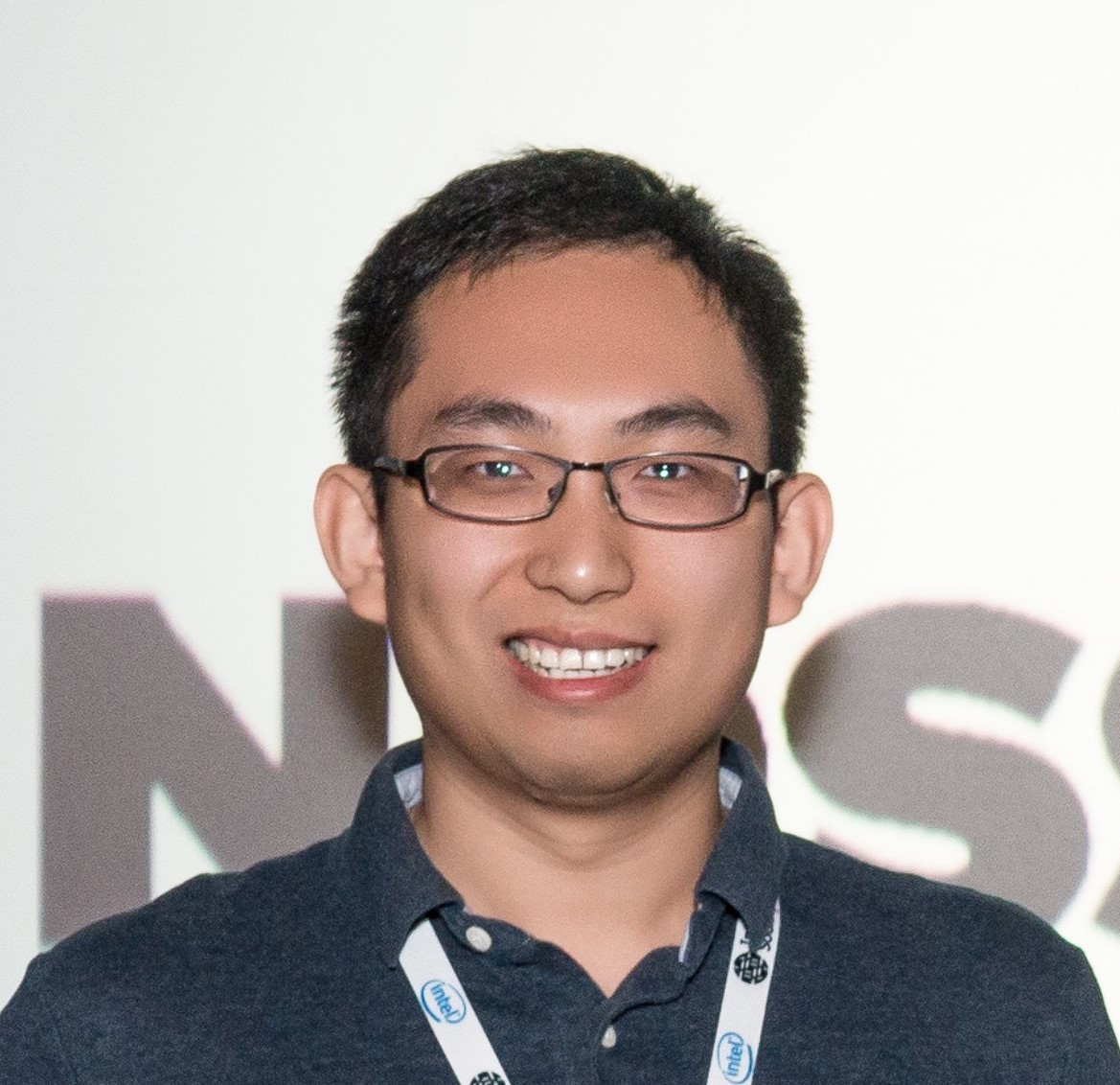 |
Cyber-Attacks against AI Stack in Autonomous Driving and Intelligent Transportation Alfred Chen, UC Irvine Abstract: With the continuous advances in sensing, AI, networking, and control, Autonomous Driving (AD) technology has recently become particularly mature and practical. In particular, today there are over 60 companies testing AD systems in public space, and the leading ones such as Waymo and GM have already entered commercial operation stages. In AD technology, the AI stack is highly security-critical: it is in charge of safety-critical driving decisions such as collision avoidance and lane keeping, and thus any security problems in it can directly impact road safety. Throughout the past few years, my group has been actively developing the research problem space regarding AI stack security in industry-grade autonomous driving systems and also intelligent transportation systems in general. In this talk, I will focus on our recent works concerning the cyber-layer attack surface of the latest AD technologies, more specifically data spoofing via GPS and V2X (Vehicle to Everything) channels. In particular, I will describe how we systematically discover novel attacks from these channels that can effectively alter the behaviors of critical AD AI algorithms (e.g., localization, perception, and cooperative ones such as platooning) such that critical system-level attack impacts can be caused (e.g., unsafe driving). I will also discuss the defense side and future research directions. Bio: Qi Alfred Chen is an Assistant Professor of Computer Science at University of California, Irvine. His research interest spans AI security, systems security, and network security. His most recent research focuses are AI security in autonomous driving and intelligent transportation. His works have high impacts in both academic and industry with 30+ research papers in top-tier venues across security, mobile systems, transportation, software engineering, and machine learning; a nationwide USDHS US-CERT alert, multiple CVEs; 50+ news coverage by major media such as Forbes, Fortune, and BBC; and vulnerability report acknowledgments from USDOT, Apple, Microsoft, etc. Recently, his research triggered 30+ autonomous driving companies and the V2X standardization workgroup to start security vulnerability investigations; some confirmed to work on fixes. He co-founded the AutoSec workshop (co-located with NDSS), and co-created DEF CON’s first AutoDriving-themed hacking competition. He received various awards such as NSF CAREER Award, ProQuest Distinguished Dissertation Award, and UCI Chancellor’s Award for mentoring. Chen received Ph.D. from University of Michigan in 2018. |
 |
Cybersecurity for Connected and Autonomous Vehicles Kristie Pfosi, Director, Cybersecurity, Aptiv Abstract: TBD Bio: Kristie Pfosi is a respected policy maker and program manager with deep technology expertise. She has been a champion for cybersecurity and program management best practices for more than a decade as a technical intelligence officer at the CIA and as an OEM and Tier 1 employee, most notably helping FCA shore up their cybersecurity practice. Today Kristie is responsible for leading the cybersecurity team at Aptiv for global incident responses, vulnerability management, penetration testing and risk assessments at Aptiv. Her work also involves developing and integrating cybersecurity protection into advanced vehicle electronics with a focus on defense-in-depth and next-generation security. Kristie holds bachelor degrees in Mechanical Engineering and Electrical Engineering from General Motors Institute (Kettering University). She has passion for building the next generation of professionals, and is a founding board member of the Women’s Security Alliance (womsa.org). Additionally, Kristie sits on the advisory board for Kettering University’s cyber security department and Washtenaw Community College’s automotive cyber certification, and is the Chair of the Auto-ISAC Education & Training Standing Committee. |
 |
Managing Legal Consequences from Cyber Attacks on Safety-Critical Functions of Intelligent Vehicles William H. Widen, University of Miami School of Law Abstract: The title of this workshop is “How to Survive Cyber Attacks on Safety-Critical Functions of Intelligent Vehicles.” Professor Widen’s remarks consider how an institution might survive the legal consequences following such an attack. For many, the general “survival” question considers two possible paths: (1) a successful defense of a safety-critical function by defeating a cyber-attack; and (2) recovery from a successful cyber-attack and mitigation of its consequences. These are engineering and systems questions, including a focus on encryption and maintaining redundant systems. The typical concerns are technical and not legal. Consider the recovery/mitigation challenges that arise in ransomware attacks which deny an institution access to its electronic books and records. Here, we often find no effective post hoc engineering or systems response—a ransom must be paid to regain access to these books and records. If payment and recovery occurs soon after the attack, the survival question for the institution is a monetary one—was the payment so large as to jeopardize the ongoing operations and solvency of the institution? There are no direct consequences to third parties, only immediate financial consequences for the institution and its stakeholders. A cyber attack on a safety-critical function of intelligent vehicles (particularly one affecting many vehicles) differs because it may threaten survival of an institution based on potential legal liability. What is the nature of this legal liability and how does an institution survive legal ramifications of a cyber-attack on safety-critical functions of intelligent vehicles? Bio: Professor Widen is a Professor of Law at the University of Miami School of Law in Coral Gables, Florida, where he teaches Contracts, Commercial Law, Secured Transactions, and other business subjects. He is an elected member of the American Law Institute. His current research focuses on the law and regulation of autonomous vehicles.
Professor Widen graduated with a J.D. from Harvard Law School in 1983, cum laude, where he was an editor of the Harvard Law Review. He has an A.B. in philosophy from Stanford University, with honors and distinction, where he was a member of Phi Beta Kappa. Following graduation, Professor Widen clerked for the Honorable Levin Campbell, Chief Judge for the federal First Circuit Court of Appeals in Boston, Massachusetts. Professor Widen practiced business law for seventeen years in New York City with the private law firm of Cravath, Swaine & Moore where he was a partner in the corporate department. As a partner, he taught an advanced commercial lending course for seven years at the Benjamin Cardozo School of Law before moving to the legal academy full time in 2001.
|
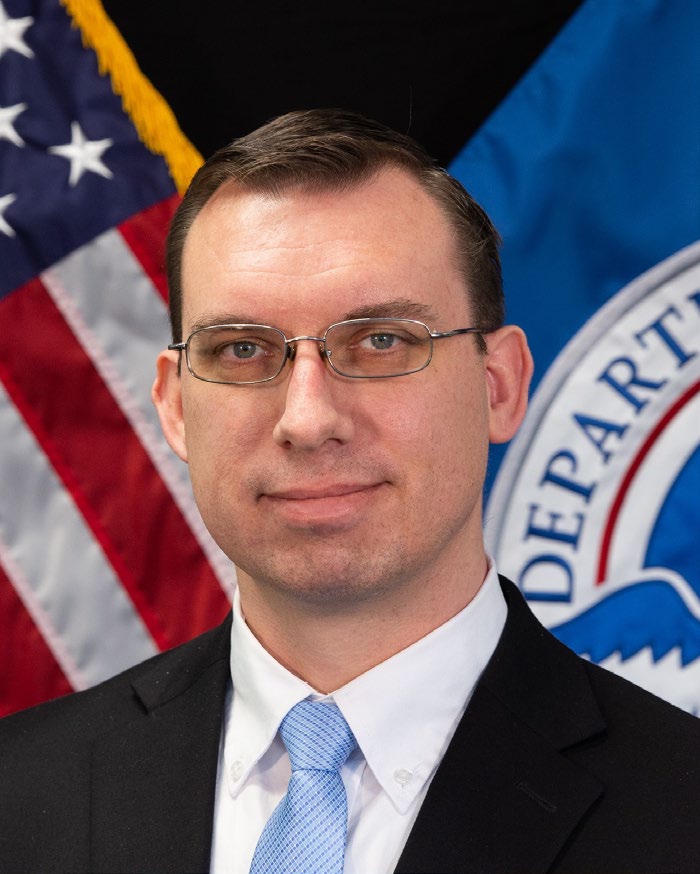 |
Cross-Collaborating to Secure Autonomous Ground Vehicles and Other Emerging Technologies Against the Threats of Tomorrow Benjamin Gilbert, US Department of Homeland Security Abstract: Today’s autonomous and semi-autonomous vehicles, such as trucks, shuttles, taxis, and last-mile delivery bots, are among the first Autonomous Ground Vehicles (AGVs) on United States’ roadways. Moreover, they rely on rapidly evolving technologies that transmit and interpret data to enable safe operation. While these cyber-physical systems (CPS) can translate into advantages that benefit organizations and communities, AGVs can also broaden the attack surface and increase vulnerabilities to cyber-physical attacks. As the CPS threat landscape continues to expand, organizations will become increasingly vulnerable to attacks resulting in data breaches, supply chain disruptions, property damage, financial loss, and injury or loss of life. As the U.S. Government’s leading federal agency on risk reduction efforts for the country’s cyber and physical infrastructure, the Cybersecurity and Infrastructure Security Agency (CISA) is dedicated to helping our partners manage risks posed by advanced threats. While a major attack related to AGVs has yet to occur, addressing rapidly evolving risks associated with these cyber-physical systems can help enhance organizational resilience, increase public trust in vehicle autonomy, and pre-empt safety considerations. As a part of this effort, CISA developed the Autonomous Ground Vehicle Security Guide to help Chief Security Officers (CSOs) and Chief Information Security Officers (CISOs) within the Transportation Systems Sector understand enterprise- and asset-level risks associated with AGVs and collaborate to implement mitigation strategies that reduce risk to people and property. My opening remarks will provide an overview on CISA’s capabilities, as well as a perspective as a regional Cybersecurity Advisor with CISA both as it relates to risk reduction of traditional cyber systems, as well as risks relating to Operational Technology (OT) environments, supply chain security, AVGs, and other emerging technologies. I will also provide an overview on CISA’s recently published Autonomous Ground Vehicle Security Guide to include the Autonomous Vehicle Cyber-Attack Taxonomy (AV|CAT), as well as additional no-cost cybersecurity resources available to increase operational resilience and the cybersecurity posture of our critical infrastructure.Bio: Mr. Gilbert serves as a Cybersecurity Advisor (CSA) in the Department of Homeland Security’s Cybersecurity and Infrastructure Security Agency (CISA). He supports the CISA region and CISA’s mission of reducing US critical infrastructure risks through the goal of strengthening the cybersecurity, reliability and resilience of public and private sector critical infrastructure, and serves in this role across the Commonwealth of Virginia, as well as the District of Columbia. As a CSA, Mr. Gilbert is a regional cybersecurity point of contact to CISA, and conducts numerous cyber preparedness, risk mitigation and incident response coordination activities across the region. These activities include conducting various outreach efforts, cybersecurity assessments, cybersecurity workshops, fostering public and private partnerships, and- if federal assistance is requested, assisting with cyber incident response coordination efforts. Additionally, Mr. Gilbert serves this role in an advisory capacity to public and private sector critical infrastructure across the region and facilitates the access and participation to additional CISA cybersecurity resources available to strengthen those organizations’ cybersecurity capabilities. Prior to this appointment, Mr. Gilbert had served as a senior analyst with the CSA program’s former headquarters where he led the development of various tools used by CSAs to measure and strengthen the cybersecurity and risk management capabilities of critical infrastructure organizations, to include being a contributor to CISA’s Cyber Resilience Review, Cyber Infrastructure Survey, and External Dependencies Management assessment methodologies. Prior to joining CISA and DHS, Mr. Gilbert previously served with the Virginia Army National Guard, and in the U.S. Army’s 82nd Airborne Division. Mr. Gilbert has been with CISA, and DHS for over 12 years and has over 18 years of experience in cybersecurity spanning the commercial, federal civilian, and DoD communities. He currently holds the Certified Information Systems Security Professional (CISSP) certification, the Certified in Risk and Information Systems Control (CRISC) certification, the Certified Ethical Hacker (CEH) certification. |
 |
Security for Software defined Vehicle Robert Kaster, Robert Bosch LLC Abstract: The software-driven transformation is reshaping the automotive industry. The vision and goal of the transformation is a truly software-defined vehicle (SDV), enabling a wealth of safety, comfort and convenience innovations that do not stop when the vehicle leaves the dealership. Through over-the-air (OTA) updates, the vehicle software can continue to evolve and improve throughout its life. But this powerful capability also opens new attack vectors through which cyber attackers can attempt to gain unauthorized access to vehicle systems and data. In this talk, we argue that the software-defined vehicle is not a vehicle in the traditional sense anymore, but an integral part of an interconnected software-based ecosystem. Due to its permanent connectivity with multiple devices and endpoints, the decoupling of hardware and software with a rapidly evolving software development cycle and the need for constant software-based monitoring, maintaining and updating the SDV demand a new scope of cybersecurity. OEMs and fleet operators not only face the challenges of protecting their new SDV-related business models and ensuring privacy, but also securing safety-critical systems and the safety of road users. From this perspective, we derive a holistic approach toward securing the software-defined vehicle anchored in three security principles, which we will discuss in detail. Bio: Bob Kaster is chief technical expert and leads the mobility product security team for Bosch in the Americas. He is responsible for developing regional product security strategy, coordinating cross-divisional security efforts and security training. Bob set up the ABS/ESP automotive safety electronics design group in North America and was responsible for the design of more than 40 million braking ECUs. He has been awarded patents in automotive safety and security and been honored as an innovator of the year for the Chassis Systems Control division three times. Bob was responsible for cybersecurity in the North American Chassis Systems Control division before assuming a cross-divisional role for cybersecurity at Bosch in North America. He has been active in the automotive cybersecurity community, serving as the co-chair for the University of Michigan Transportation Research Institute (UMTRI) Mobility Transformation Center (MTC) cybersecurity group in 2016 and 2017, as the Auto-ISAC Supplier Affinity Group chair in 2018 and 2019, then lead the European task force for 2 years and is currently the Advisory Board vice-chair. Bob has degrees from the University of Michigan and is working to complete doctoral studies at UM Dearborn next year. |
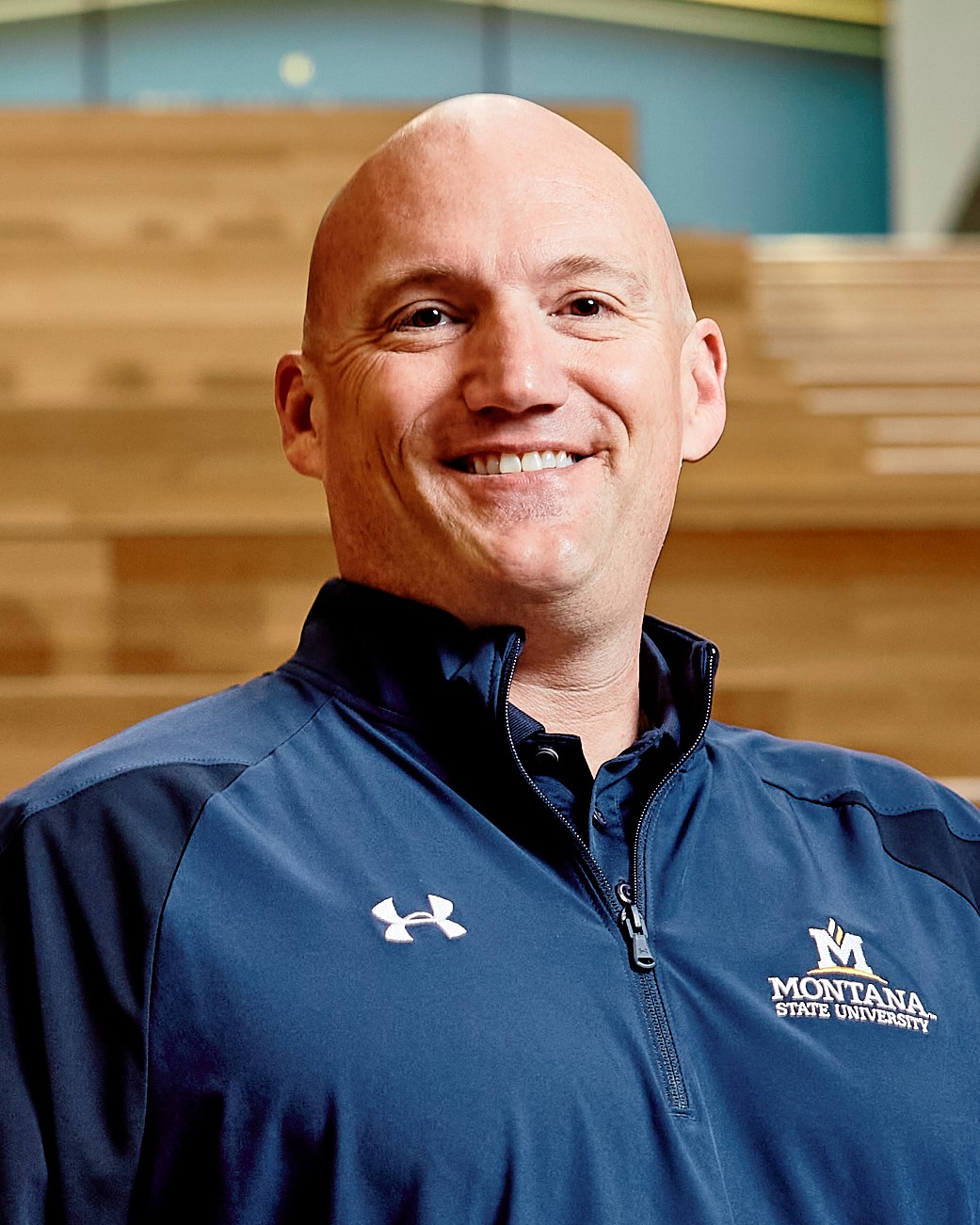 |
CyberShield – An Approach to Defeat Malware in Edge Computers using Hardware Diversity Brock LaMeres, Montana State University Abstract: This paper will present a novel edge computing approach called CyberShield that can detect and defeat malware using hardware diversity in edge computers. CyberShield implements functionally equivalent, redundant, heterogeneous, computer cores on a Field Programmable Gate Array (FPGA) and produces the output based on a majority vote. Since the system is implemented on an FPGA, the hardware description of the redundant cores can be altered prior to implementation. After compilation of the target software, CyberShield replicates the execution binaries and scrambles the instruction codes. It then alters the hardware description of the associated cores to be able to execute the new scrambled instruction codes. Once implemented on the FPGA, the system runs redundant cores that are functionally equivalent, but use different instruction codes. In the event of a malware attack, CyberShield will detect the malware as unknown instruction codes and flag the event. Once the computer is aware there is an attack, it can move into a safe mode to continue processing. Bio: Brock LaMeres is a professor of electrical & computer engineering at Montana State University. His research focus is on fault-tolerant computing systems for critical applications. Dr. LaMeres has been investigating novel edge computing architectures that can recover from externally induced faults and cyber-attacks for use in aerospace computers. This work has been funded by NASA for the past decade to build computer systems that can support future space missions that require increased computation while maintaining reliability. This work has also been funded by the Department of Homeland Security and Raytheon for application in defense system. In 2020, Dr. LaMeres founded Resilient Computing, LLC to commercialize the computer technologies that his group has developed at Montana State. |
 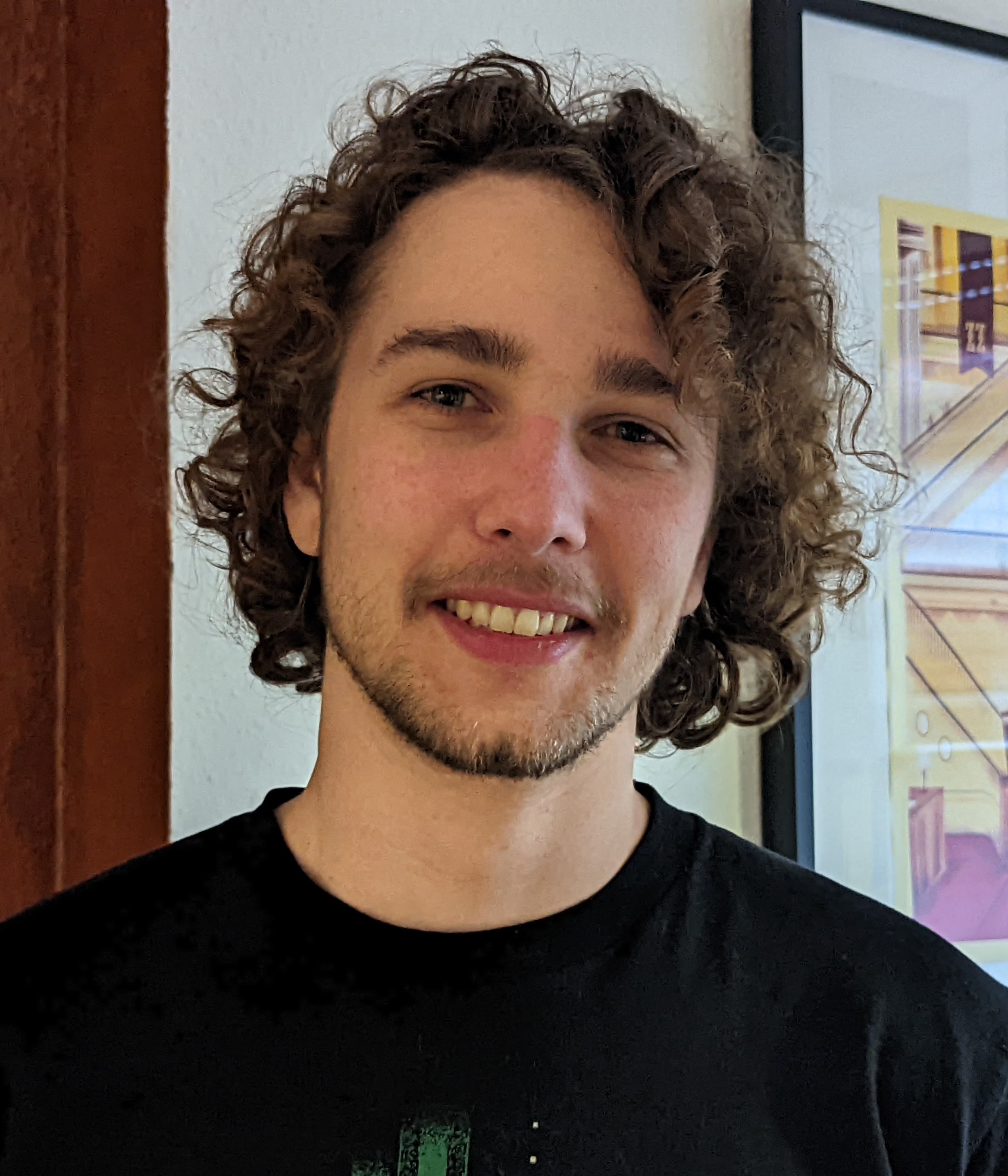 |
How to defend connected intelligent vehicles: Transferring established Information Security best practices to the vehicular world Miriam Gruber and Jan Lange, Volkswagen Abstract: With each passing year vehicles get more and more closer to “normal” IT devices such as computers and smartphones, forcing the automotive industry’s Information Security capabilities to improve as well. The same threat landscape enterprise IT has had to deal with for decades is now slowly expanding its attention towards automotive mobility products and the likelihood of sophisticated attacks against vehicles and their infrastructure will only increase. There is much to learn from the methods and controls used by “classical” enterprise IT, ranging from attack detection and Incident Response over Cyber Threat Intelligence to active defense combining automated response with human interaction. Based on our experiences in the automotive industry we will share our vision of secure mobility, our strategy how to achieve it and the challenges we have faced during its implementation so far. Bio:
|
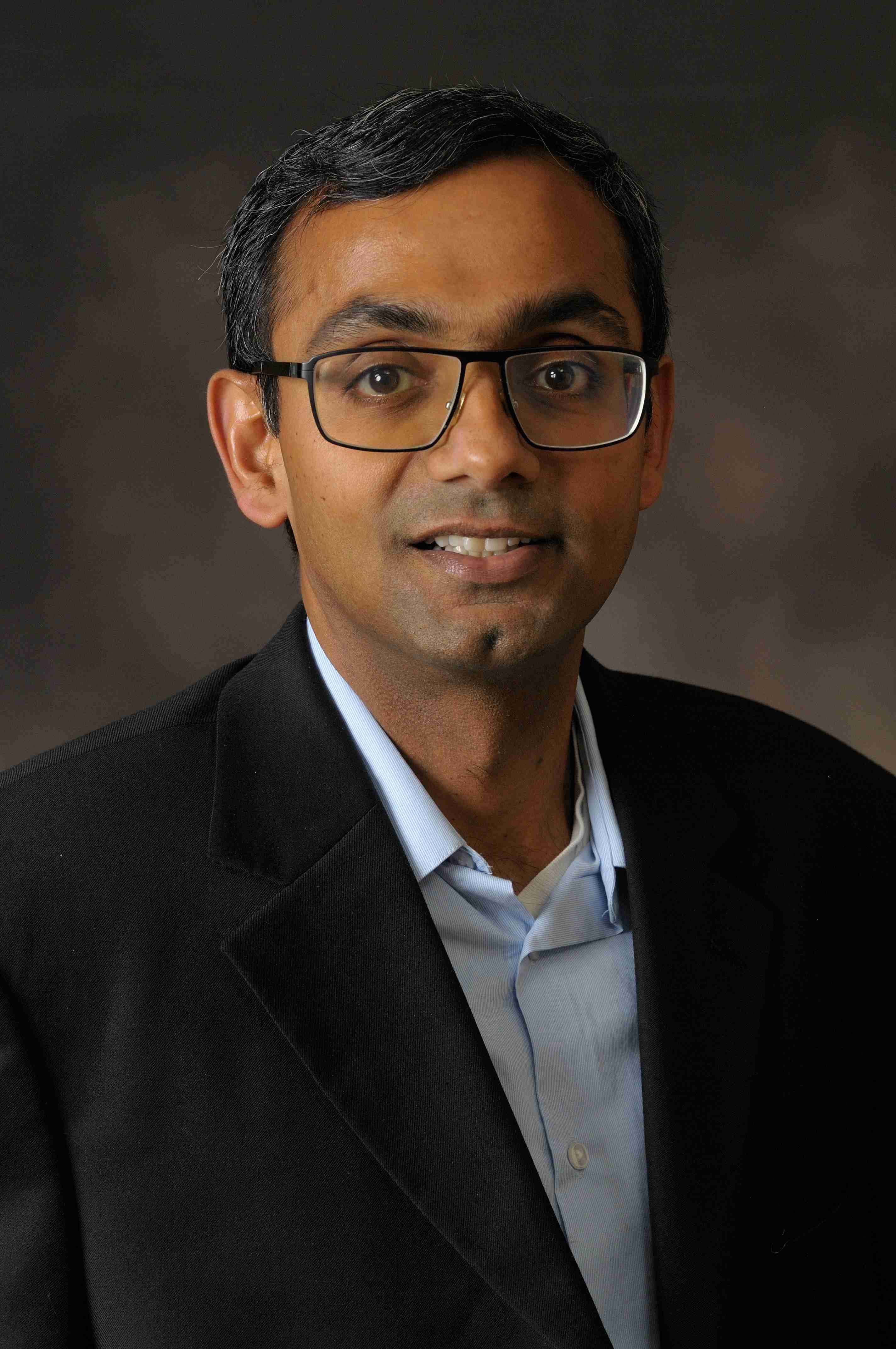 |
Detection is not enough: Low-cost Attack Recovery for Autonomous Robotic Vehicles Karthik Pattabiraman, University of British Columbia Abstract: Autonomous Robotic Vehicles (RV) such as drones and rovers rely extensively on sensor measurements to perceive their physical states and the environment. For example, the GPS sensor provides geographic position information, the gyroscope sensor measures angular velocities, etc. Attacks such as sensor tampering and spoofing can feed erroneous sensor measurements through external means that may deviate RVs from their course and result in mission failures. Such attacks have been performed in the wild against military drones and marine navigation systems. Prior work in the security of autonomous RVs mainly focuses on attack detection. However, detection alone is not enough, because it does not prevent adverse consequences such as drastic deviation from the mission trajectory, and/or crashes. The key question, "how to respond once an attack is detected in an RV?" still remains unanswered. In this talk, I'll describe some of the approaches we've been pursuing in my group to address this question, and our future directions. Bio: Karthik Pattabiraman is a Professor of Electrical and Computer Engineering at the University of British Columbia (UBC). He received his MS and PhD from the University of Illinois at Urbana Champaign (UIUC) in 2004 and 2009, and spent a postdoctoral year at Microsoft Research (MSR), Redmond before joining UBC in 2010. His research interests are in dependability, security, and software engineering. Karthik has won multiple awards such as the Inaugural Rising Star in Dependability Award, 2020, from the IEEE and IFIP, the distinguished alumnus award from the University of Illinois (UIUC), CS department, 2018, and three awards for excellence in research and mentoring from UBC. He is a senior member of the IEEE, a distinguished member of the ACM, and the vice-chair of the IFIP Working Group on dependable computing and fault-tolerance (WG 10.4). |
 |
Design and Assessment of Safe Autonomous Vehicles Saurabh Jha, IBM Research Abstract: Artificial intelligence is increasingly used in critical cyber-physical systems to automate mission-critical tasks such as self-driving cars, unmanned aerial vehicles, drones, surgical robots, and industrial bots. The design of autonomous systems has mainly focused on developing models, algorithms, and datasets, demonstrating high accuracy for specific tasks such as object recognition and classification. However, assessing the end-to-end safety of autonomous systems in the presence of uncertainty stemming from faults, attacks, or erratic actors is mostly unexplored. Thus, hindering the deployment of autonomous systems in safety-critical settings where one needs to rely on the autonomous systems to make decisions or revert to a failsafe mode. In this talk, I will discuss the technical challenges and solutions for assessing the safety of self-driving cars, a mission-critical system, that must operate in a highly uncertain environment. I will describe our work that leverages machine learning approaches such as causal and counterfactual learning in conjunction with reinforcement learning techniques to assess and maintain the safety of autonomous vehicles. Bio: Saurabh Jha is a research staff member at IBM Research in Yorktown Heights, New York (since 2021). He received his Ph.D. in 2021 and MS in 2016 in Computer Science from the University of Illinois at Urbana-Champaign (UIUC), and bachelor’s in computer science and Engineering from VIT university . His research is at the intersection of computer system dependability and machine learning. His work has significantly impacted both industry and academia, with 20+ papers at prestigious international journals and conferences focusing on dependability, machine learning, and HPC/Cloud. His research has attracted significant news coverage from several media outlets such as Science Daily, Space Daily, and Guancha.cn. He has received several awards, most notably the IBM Ph.D. fellowship (2020-2021), SAP Industry Ph.D. scholarship (2014), and the VIT University best outgoing student award (2014). In addition, he has received several best paper awards, honorable mentions, and best presentation awards in prestigious international conferences. |